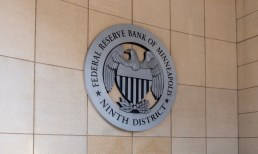Basketball is one of the most popular sports – if not the most popular sport – in China, but there’s a little less NBA available today for online shoppers in that country, according to reports. That’s because China eCommerce giant Alibaba apparently has removed any products related to the Houston Rockets from its search results.
The move comes after the general manager of that U.S.-based pro basketball team tweeted out support for the protestors in Hong Kong (and then deleted that tweet under pressure from ownership). According to CNBC, “Searches in Chinese for ‘Houston Rockets’ and ‘Rockets’ on Alibaba-owned Taobao and Tmall and its rival JD.com yielded no results, highlighting the potential financial fallout the Rockets could face.”
That’s not the only fallout from the controversy to involve a China-based tech, payments and commerce player. “Chinese tech giant Tencent, which owns the digital rights to NBA games in China, said it would stop showing Rockets matches and news related to the team,” CNBC said. “Tencent has been the digital media partner of the NBA in China since 2009. The two sides just announced an extension of their deal to the 2024-2025 season that’s reportedly worth $1.5 billion.”
China’s Commerce Push
These moves come amid a push by China to encourage more cross-border commerce and retail. The country’s officials want to promote cross-border eCommerce in additional cities as an initiative to stabilize trade in the country, according to a report by Reuters.
Cross-border eCommerce sales grew at a rate of 30 percent in 2018 in China and were expected to hit $175 billion, representing 10 percent of the online consumer retail across the globe. China has become a leading player in cross-border online trade, with total cross-border eCommerce exports hitting $130 billion last year, noted the report, citing data from China E-Business Research.
Advertisement: Scroll to Continue
In Europe, reportedly 39 percent of the top-selling merchants on Amazon marketplaces are located in China.
Local Chinese merchants were also getting support from the government of China, with Yiwu and roughly 20 other cities granted exemptions from VAT for cross-border eCommerce exports.
The exports of products sold online from the city were expected to reach $4.3 billion in 2018, noted the report. Of the businesses in Yiwu, 36,000 have registered on Alibaba’s AliExpress, which is its international platform, while 35,000 are registered on eBay, 12,000 on Wish and 10,000 on Amazon.
Meanwhile, Amazon and Alibaba have provided training for local merchants in setting up and operating stores as well as extending credit and logistics services to speed up delivery times.
Alibaba Changes
These moves involving the NBA also come at a time of change for Alibaba.
China’s Alibaba Group Chairman Jack Ma left the firm in September, at a time when business has taken a dive. Ma’s hand-picked successor is Daniel Zhang, an accountant by trade.
“He has the logic and critical thinking skills of a super-computer, a commitment to his vision, the courage to wholeheartedly dare to take on innovative business models and industries of the future,” Ma said of Zhang in 2018 in a message announcing his appointment.
As CEO, Zhang’s leadership style will likely be noticeably different than that of Ma, who is considered “flamboyant and charismatic” and is among the most recognized Chinese entrepreneurs.
Ma, a former English teacher, launched Alibaba 20 years ago from his shared apartment in the city of Hangzhou in eastern China, the article said.
One of Zhang’s major challenges will be finding new areas of growth as China’s eCommerce sector matures, analysts said.
“If Alibaba wants to find new innovations or trends, this is going to be more difficult than before,” Liu Yiming, an analyst at the research division of 36kr, a Chinese tech publishing group, told Reuters. “For Daniel Zhang, this will be a big challenge.”
Earlier this month, Alibaba announced a deal to buy NetEase’s cross-border retail platform Kaola for $2 billion. The deal comes amid a general push in China to promote more cross-border eCommerce. Under the acquisition, Kaola will merge with Alibaba’s Tmall Global while still operating independently to create a massive cross-border eCommerce business.
The recent news involving the NBA shows all the different ways that international eCommerce can work.




